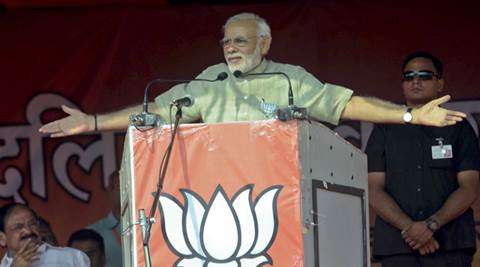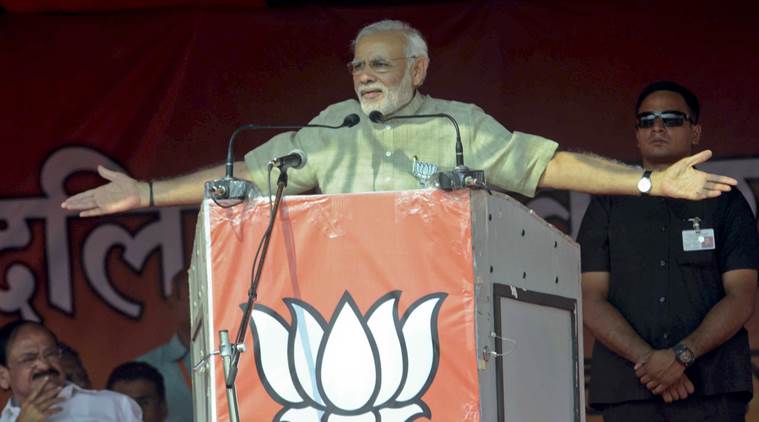Opinion Risk of rhetoric
Bihar’s voters want to discuss governance. So why are star campaigners doing a rewrite?

 Prime Minister Narendra Modi speaks during an election rally in Hajipur in Vaishali district of of Bihar. Oct. 25, 2015. (Source: AP)
Prime Minister Narendra Modi speaks during an election rally in Hajipur in Vaishali district of of Bihar. Oct. 25, 2015. (Source: AP)
Ahead of voting in the third phase of the Bihar assembly elections, Prime Minister Narendra Modi has sharpened the campaign pitch with a remark that the grand alliance leaders intended to carve out a new community quota from the existing reservations for Dalits and OBCs in government
jobs and educational institutions. While the prime minister did not name the beneficiary community, but critics have been quick to seize on this and say that he had minorities on his mind.
Which is a bit of a surprise, given that barely days ago, Modi had taken the high ground, calling for harmony, underlining the president’s ringing message on tolerance and reiterating his appeal that Hindus and Muslims needed to fight poverty, not each other. Indeed, he stressed in his Mann ki Baat address to the nation on Sunday that shanti, sadbhavna and ekta are essential to the pursuit of development. Modi towers over his colleagues in the government and other leaders in the party. The tone and tenor of his speeches set the template for the rest. The government and the party have been repeatedly embarrassed by ideological hotheads, some of whom hold public office. The party chief and a couple of senior cabinet ministers recently reprimanded the rabblerousers and warned them. What message goes out to them from a remark like this one, made by the prime minister himself?
There is every indication to believe that Bihar is going beyond just the caste-community narrative for a debate on governance. In fact, all parties in the fray started the campaign by discussing the state’s development trajectory. Midway, the discourse changed to subjects like cow slaughter and forward versus backward caste mobilisations. Leaders such as Lalu Prasad have invoked the spectre of caste war and communal conflict. Elections are, of course, a tense affair, but should politicians risk long-term social peace in the state by whipping up divisive passions at the cost of substantive governance issues? Can fear be the fuel for change? Bihar’s voters know better.

